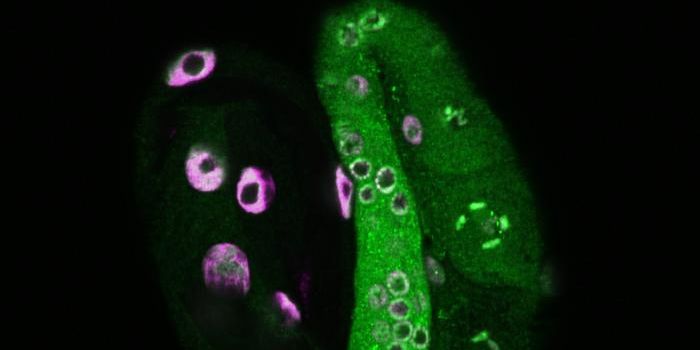
The gradual modification of a species' structures and features, otherwise known as the principle of adaptation, is one of the pillars of evolution. While there is ample evidence to support the slow, ongoing process that alters the genetic makeup of a species, scientists could only suspect that there were also organisms capable of transforming themselves ad hoc to adjust to changing conditions.
Evidence of this phenomenon comes from a new study published in eLife by Dr. Eli Eisenberg of Tel Aviv University's Department of Physics and Sagol School of Neuroscience, in collaboration with Dr. Joshua J. Rosenthal of the University of Puerto Rico. The study showcases the first example of an animal editing its own genetic makeup on the fly to modify most of its proteins, enabling adjustments to its immediate surroundings. The research, conducted in part by TAU graduate student Shahar Alon, explored RNA editing in the Doryteuthis pealieii squid.
As Dr. Eisenberg explained, "We have demonstrated that RNA editing is a major player in genetic information processing rather than an exception to the rule. By showing that the squid's RNA-editing dramatically reshaped its entire proteome - the entire set of proteins expressed by a genome, cell, tissue or organism at a certain time - we proved that an organism's self-editing of mRNA is a critical evolutionary and adaptive force." He explained that this demonstration may have implications for human diseases as well.
While RNA is a copy of the genetic code that is translated into protein, the RNA "transcript" can be edited before being translated into protein, paving the way for different versions of proteins. Scientists have observed abnormal RNA editing in humans in patients with neurological diseases. While the changing physiological appearance of squid and octopuses over their lifetime and across different habitats has suggested extensive recoding might occur in these species, this could never be confirmed, as their genomes (and those of most species) have never been sequenced.
In the new study the researchers extracted both DNA and RNA from squid. By harnessing DNA sequencing and computational analyses at TAU, the team compared the RNA and DNA sequences to observe differences. The sequences where the RNA and DNA did not match up were identified as "edited."
Dr. Eisenberg said, "It was astonishing to find that 60 percent of the squid RNA transcripts were edited. The fruit fly, for the sake of comparison, is thought to edit only 3 percent of its makeup. Why do squid edit to such an extent? One theory is that they have an extremely complex nervous system, exhibiting behavioral sophistication unusual for invertebrates. They may also utilize this mechanism to respond to changing temperatures and other environmental parameters."
The researchers recently received an Israel-U.S. Binational Science Foundation grant to explore the subject of genetic editing in octopuses. They hope to use this approach to identify recoding sites in other organisms whose genomes have not been sequenced.
"We would like to understand better how prevalent this phenomenon is in the animal world," Dr. Eisenberg said. "How is it regulated? How is it exploited to confer adaptability?
He added, "There may be implications for us as well. Human diseases are often the result of ‘misfolded' proteins, which often become toxic. Therefore the question of treating the misfolded proteins, likely to be generated by such an extensive recoding as exhibited in the squid cells, is very important for future therapeutic approaches. Does the squid have some mechanism we can learn from?"
 The gradual modification of a species' structures and features, otherwise known as the principle of adaptation, is one of the pillars of evolution. While there is ample evidence to support the slow, ongoing process that alters the genetic makeup of a species, scientists could only suspect that there were also organisms capable of transforming themselves ad hoc to adjust to changing conditions.
The gradual modification of a species' structures and features, otherwise known as the principle of adaptation, is one of the pillars of evolution. While there is ample evidence to support the slow, ongoing process that alters the genetic makeup of a species, scientists could only suspect that there were also organisms capable of transforming themselves ad hoc to adjust to changing conditions.







